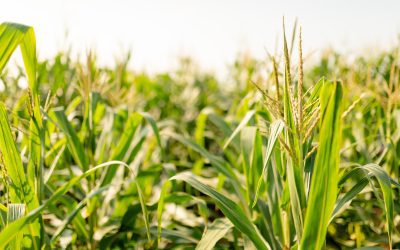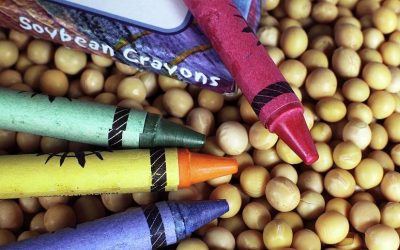With 19 months until the 2018 federal farm bill expires, one legislator acknowledged the U.S. House Agriculture Committee is getting a late start on the discussion process. “This farm bill we’re in, we’re way behind on hearings,” noted Rep. Glenn “GT” Thompson (R-Pa.), minority Ranking Member. He joined fellow committee Republican Rep. Jim Baird on Feb. 10 at the Boone County Fairgrounds in Lebanon for a roundtable listening session focused on collecting farm bill priorities from Indiana ag stakeholders.
Baird, Indiana District 4 representative to Congress and a longtime farmer, said another point of these sessions is to carry the farm point of view back to fellow committee members who also serve on other House committees affecting commerce, technology, trade and more. With all the industries that touch agriculture, he hopes this will educate non-farm lawmakers so they understand how their decisions for other sectors impact workers in agriculture.
“I think our goal is to minimize the amount of regulation” put on farmers, he added – and for those that are enacted, “make sure those rules are implemented in a timely manner so farmers can be prepared for it.”
Fellow swine producer David Hardin of Danville – representing the Indiana Pork Producers board at the roundtable – kicked it off by recalling the current farm bill includes funding to boost the National Animal Health Laboratory Network. It also includes money for a National Animal Vaccine and Veterinary Countermeasures Bank and the National Animal Disease Preparedness and Response Program.
In mid-2020, the USDA made an initial purchase of footand-mouth disease (FMD) vaccine doses as part of the Bank. Hardin wants to see such efforts fully funded again in the next farm bill, adding if FMD gets a foothold here, the U.S. could see revenue losses as high as $130 billion in pork, beef and other animal products.
Jill Duncan, presidentelect of the Indiana Beef Cattle Association and a cow-calf producer from Wingate, Ind., agreed FMD “could break us.” Another animal pandemic Hardin noted to watch for is African swine fever, which has depleted pig herds in Asia and those as close as in the Dominican Republic.

And when there is an animal disease outbreak, the farm bill’s funding for university extension programs allows thoseoffices to be able to partner with the necessary agencies to respond with education and assistance directly to producers.
Dr. Jason Henderson, Purdue University College of Agriculture associate dean and director of extension, cited an example from early February in which extension was able to work with the Indiana State Board of Animal Health in responding to a report of avian influenza found on a southern Indiana turkey farm.
Aid in managing risk
A few of those speaking at the roundtable cited the importance of the next bill continuing to fund crop insurance premium discounts for growers.
Indiana Farm Bureau President Randy Kron, for instance, pointed out crop insurance is often required for applicants to qualify for farm operating bank loans. Indiana Corn Growers Association President Scott Smith, a farmer from Windfall, Ind., noted crop insurance is a necessity for a farm’s financial risk management, especially given the hikes in costs of production over last year alone.
Duncan said growers normally have to budget for the possibility of year-over-year cost increases each spring, but supply chain shortages during the COVID-19 pandemic have ramped that up. “Yes, we may get over $6 for corn, but there are supplies we don’t know if we can get” – for example, if your tractor needs a new tire and local suppliers don’t have them in stock, when will you be able to get into the field to plant?
Thompson said crop insurance premium funding “becomes a target because of ignorance” – there are lawmakers who don’t know much about the public-private program or what insurance pays out for specifically. In 2019, he and now-House Ag Chair Cheri Bustos (D-Ill.) started the bipartisan Crop Insurance Caucus to organize educational briefings to help colleagues and their staff members better understand this program.
Other risk management measures funded by the farm bill include some indemnity payments to livestock farmers. Indiana State Poultry Assoc. President Becky Joniskan cited the above-mentioned avian flu report as the sort of situation in which such disbursement can help farmers replenish their flocks.
Farm bill funding to help farmers improve soil health and water quality is also vital, according to Amy Cornell, representing the Indiana Agriculture Nutrient Alliance at the roundtable. When asked what their challenges are in implementing nutrient management measures, she said farmers most often cite the time and cost needed, as well as a lack of tools, to best do so.
Henderson wants the 2023 farm bill to focus more on soil health, nutrient management and other efforts to respond positively to climate change. “Ag is the solution to our climate issues; it’s not the problem,” he said, also welcoming the recent USDA announcement of $1 billion to finance pilot “climate-smart commodity” projects.
Both Congressmen agreed climate change needs to be addressed, and Thompson noted Republicans “have not always been at the table on climate” because he said a lot of the argument was based on emotion. He wants climate regulations to be scientifically based – and thinks U.S. agriculture can prove it is an ally.
“I want to take the target off of American agriculture of ‘Climate Criminal,’” he said.
Record inflation also worrisome
Recent news reports of record inflation are worrisome, too. Smith, who is a 47-year farmer growing corn for ethanol, soybeans and processing tomatoes, is concerned how inflationary pressure will add to the cost of the seeds and equipment he needs. Thompson agreed, adding the public may see news about crops and meat commanding record commodity prices in the current supply-chain situation but not realize the income reality for the average family farm.

“It is a margin, at the end of the day,” he said of the difference between income and input costs.
Henderson wants to see funding for efforts to prepare young people to be more STEM-ready when entering ag careers. A tangential technology concern is also to expand rural broadband, or high-speed internet, access – he cited Purdue extension offices that haven’t been able to participate in video-streaming meetings during the pandemic because of poor connection service.
Kron brought up the 2018 Prop 12 vote in California, which requires that pork, eggs and veal sold there be produced from animal-confinement conditions set out in the resulting state law. This potentially affects the practices of farmers in other states trying to sell their meat and eggs into California, since it would require many to retrofit existing or construct new pig, cattle and chicken facilities. There is a Superior Court ruling in California to stay enforcement of the law, and lawsuits calling to examine Prop 12 for possible encroachment on Congress’ constitutional role to regulate interstate commerce.
Thompson said debate over California regulations affecting the rest of the country caused something of a “civil war” among Ag Committee members, with each looking out for their state’s interests.
“Having your voice as part of this is incredibly important,” Thompson said at the close of the roundtable.



